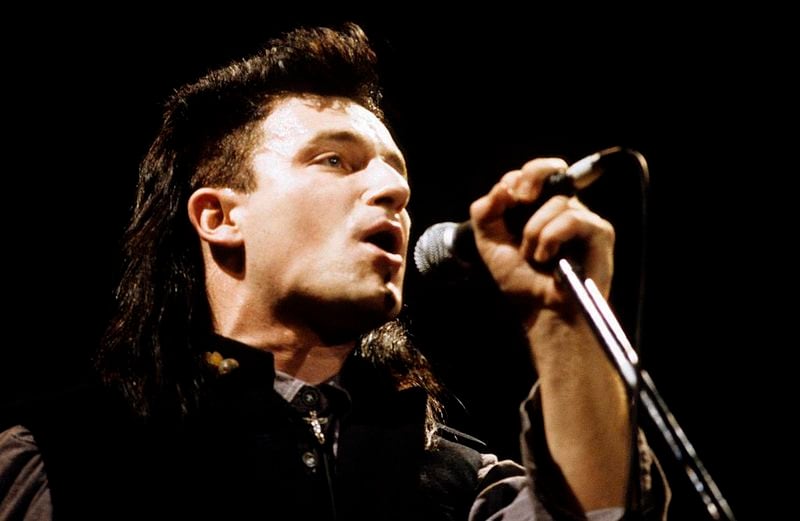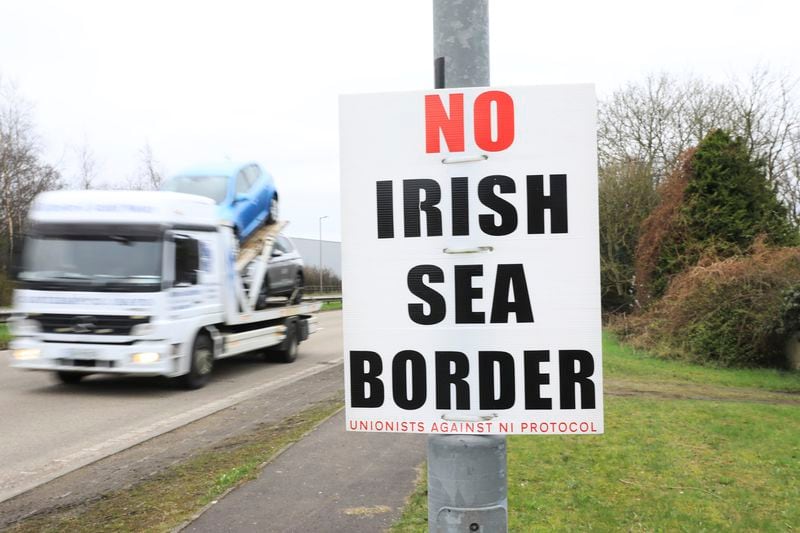On the eve of the referendum to ratify the agreements, the leader of U2 took the stage in a recital with David Trimble, leader of the Ulster Unionist Party, and John Hume, leader of the Social Democrat and Labor Party, as than boxers.
After the signing of the historic Good Friday Agreements on 10 April 1998, the final decision lay with both the citizens of Northern Ireland and those of the Republic of Ireland who, in May, had to go to the polls to give their vote. in a referendum.
Almost at the end of the campaign and only three days after the consultation, the Irish group U2 gave a historic recital on May 19, 1998 at the Waterfront Hall in Belfast. The central question throughout was precisely whether or not to support the deal.
The Good Friday Accords, also known as the Belfast Agreement, was a political pact designed to end 30 years of violent conflict in Northern Ireland. The riots last nearly 30 years and claim the lives of more than 3,500 people.
The Dublin-based global band were famous for blending political themes into their songs. In fact, one of his hits, “Sunday Bloody Sunday,” was about the British Army assaulting 26 unarmed civilians during a protest march in 1972.
A scene from the concert has become a key image of the campaign and the march towards peace in Northern Ireland. It was U2 frontman Bono raising the hand of David Trimble, leader of the Ulster Unionist Party (UUP), and John Hume, leader of the Social Democratic and Labor Party (SDLP), as boxers. This image gave a boost to the approval of the agreement.

“I found myself between two great men,” the singer told The Irish Times, recalling the moment 25 years after the deal. “Not the meat, but the butter on the sandwich. The referee of the big fight raises his hand to make history kind to everyone who lives on this island.”
Bono recalled planning the moment backstage at Belfast’s Waterfront Hall as guests at the concert of Northern Irish band Ash. He remembers making an unusual request to politicians before going on stage.
“In the dressing room, I had a kind of good idea, which turned out to be brilliant”, says Bono, “which was to win over the crowd with an impossible question for a politician: ‘Can you go on stage and not not speak?'” he said.
“’If they talk,’ I told them, ‘they’ll probably start boos like it’s traditional at rock concerts. A photo shoot is all we need here. It’s deadly serious, but it’s also spectacle. They both smiled,” he recalls.
During the onstage interaction with the politicians, the singer “provided a glimpse of two men from different traditions coming to a common understanding for the common good.”
The moment on stage became one of the defining images of the Good Friday Accords.

“Bono was instrumental in everything,” said Tim Attwood, one of the concert organizers and a former Social Democrat and Labor politician from Northern Ireland. “He knew exactly how important it was to be a showman and how to create a global iconic image. He led the news everywhere.
Attwood told the Washington Post, “We had 2,500 kids to get out there, so we started calling the schools. The word got out and a lot of people wanted to be there. Tickets were distributed free of charge to high school students in Catholic and Protestant neighborhoods.
What do the Good Friday Accords say?
The treaty established a new government for Northern Ireland, which represented both nationalists and unionists and was given control of key areas such as health and education by transfer from London, a process known as the decentralization name.
A new parliament has been formed, the Northern Ireland Assembly, which is located in the Stormont area of Belfast. Other parts of the agreement deal with respecting the rights of people, no matter what part of the community they come from.
The armed groups agreed to lay down their arms and those who had been involved in the violence were released from prison. The British government has agreed to aim for “normal security arrangements”, including a reduction in the British military presence.
After Brexit in 2020, Northern Ireland became the only part of the UK to have a land border with a European Union country, which is the Republic of Ireland.

As checks on goods transported between the UK and EU markets are now required, this issue has generated friction. Both sides agreed that this should not happen at the Irish border to protect the Good Friday agreements, as there were concerns that cross-border cooperation could be threatened if new checkpoints were established.
Indeed, during the conflict, people crossing the border were subject to security checks by the British army. And although the agreement did not refer specifically to the border, it promised to eliminate all security installations.
To keep the border clear, the UK and EU have agreed the Northern Ireland Protocol, in which goods are checked to ensure they meet EU standards when they arrive in Ireland North from Great Britain (England, Scotland and Wales).
Proponents of the plan, including the nationalist Sinn Féin party, say the Good Friday Agreements must be protected. But Unionist parties, including the Democratic Unionist Party (DUP), say it actually undermines the deal because it separates them from the rest of Britain.
Source: Latercera
I am Robert Harris and I specialize in news media. My experience has been focused on sports journalism, particularly within the Rugby sector. I have written for various news websites in the past and currently work as an author for Athletistic, covering all things related to Rugby news.


